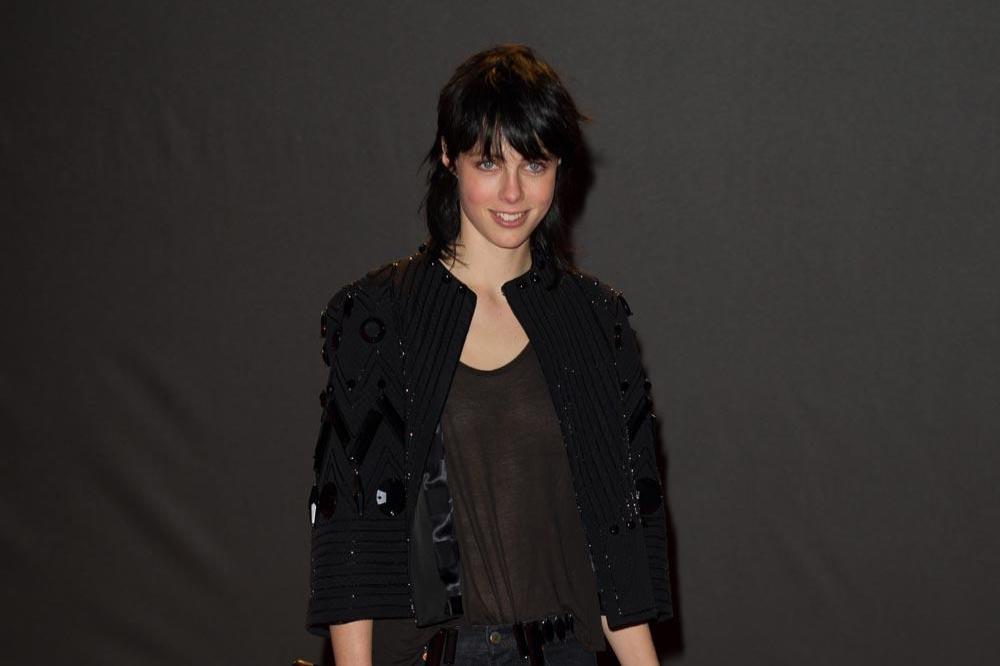Edie Campbell thinks it is harder for male models to speak out about sexual misconduct in the fashion industry.

Edie Campbell
The 27-year-old model has admitted there is a "problem" in the business, and she thinks there is "scant mention" of men who have suffered sexual abuse in the sector, which Edie believes is because the victims find it "too difficult" to open up about their horrific experiences.
In an open letter penned to WWD, the catwalk icon wrote: "And more than this: many of them were male models. There has been scant mention of the sexual abuse suffered by male models in the mainstream media.
"Abuse suffered by young men is more complex. I would assume that it is more difficult for the victims to speak out: The language doesn't exist, and the conversation is currently weighted heavily in support of young female victims. The shame felt is probably greater as there is a stigma involved. The abuse can be perceived as emasculating, and then there is the delicate subject of homophobia. The global conversation about sexual abuse has been (possibly rightly) focused on female victims. The statistics add up. But when you zoom in on the fashion industry, I would assume that the numbers are much more evenly split between male and female victims. Within fashion, the discussion then becomes less about toxic masculinity and patriarchy, and more about abuse of power."
This news comes in the wake of allegations made against prominent figures in the movie business, including Kevin Spacey and Harvey Weinstein.
And though Edie has insisted she has "no first hand experience" of sexual abuse during her career, she thinks it has become increasingly more difficult for her to "define" what "appropriate behaviour in the workplace" is now, as she has hinted people can misconstrue their job description, which is to be "as desirable as possible", as a sign encouraging others to take advantage of them.
The brunette beauty said: "It is worth pausing at this moment to say that I have no first-hand experience of sexual abuse within fashion. I would also like to state that throughout my 12 years as a model, I have been unbelievably privileged to work with such extraordinary people. They are funny, talented, exciting and cultured human beings. And I am very grateful, and very lucky.
"When models go on set, we enter into an unspoken contract. For that day, we surrender our bodies and our faces to the photographer, stylist, hairdresser and make-up artist. We relinquish ownership of ourselves. To state the obvious: We sell our desirability. That is the job description -- be as desirable as possible. This doesn't mean that, 'We're asking for it.' Our success and our financial security are dependent on those more powerful than us. The power imbalance is huge, and the duty of care to that model is even greater as a result.
"First, there is no line between the personal and the professional. Work, to me, does not look like work: I undress in front of the people I work with, I travel with these people, I get drunk with them, they ask me who I'm shagging, we tell stories, we giggle, we gossip and we become part of 'the gang.' It's a school trip for all ages. When an industry becomes as informal as this, it becomes harder to define what is appropriate behaviour for the workplace. Pranks, sexually explicit jokes, suggestive comments -- these all slide under the radar in a 'fun' and 'creative' industry like fashion. Please note the irony of tone.
"Second, fashion applauds diva behaviour. The problem with fashion's celebration of extreme behaviour is that it becomes a game of one-upmanship, with no one ever calling out: 'Too far!'
"Third, fashion hates boring or uncool people. But I think we have to reassess what exactly qualifies as 'uncool.' Being 15 -- or, actually, being any age -- and not wanting to be topless, or strip naked in front of what are essentially your 'work colleagues' is not prudish. Not wanting to make out with someone for a picture is not 'being difficult.'"
And the London-born star thinks people have become "too accepting" of foul play in the business.
She continued: "But we have a problem: We operate within a culture that is too accepting of abuse, in all of its manifestations. This can be the ritual humiliation of models, belittling of assistants, power plays and screaming fits. We have come to see this as simply a part of the job. Although we may not all, as individuals, have actively contributed to this culture, every time we turn a blind eye, our silence perpetuates that culture. Our inaction makes us complicit."
Tagged in Edie Campbell

